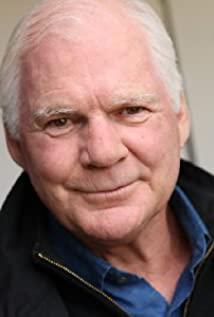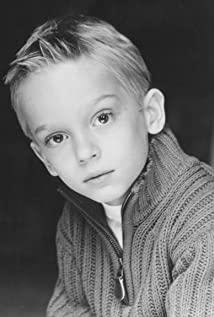Although some people have been in Hollywood for most of their lives, when they look back, they often find that they actually only lived in one era. Those people can be said to be a tragedy or a classic of an era. Clint Eastwood is obviously not that kind of person. He not only does not want to be a forgotten tragedy, but also does not want to be a person who is frozen in a certain era. The real strong person is able to constantly change his position to adapt to it. people of the era in which they live. The old cowboy once led the era of classic western films and experienced the years of hot action films. When his feet are based in this new era, he is also adapting to the tide of social dramas.
In terms of subject matter, "Baby Tuning" still continues the typical temperament of "post-911 era" Hollywood movies. The film shows strong humanistic feelings at all times. The core character of the story is a single mother, who is hard to raise My own children use their own values to teach them how to deal with others. However, the children always need the care of their mothers. The heavy work of mothers always restrains them from giving more appropriate love to their children. Finally, one day, the children run away alone. , since then there is no audio. Another story of a missing child, but this one has something unique about it. The focus of the film is not only on the emotional state of a mother after losing her child, but what the old cowboy focuses on here is the injustice and darkness for women in that era.
The whole story is divided into two clues to tell here. The first clue takes Mrs. Collins played by Jolie as the main character, focusing on the loss of her child and a series of obstacles and people encountered in the process of finding the child. The shocking inhuman treatment; another clue was injected after the first main line had progressed by nearly a third, mainly the case of a farm serial killer killing a child, which was slowly presented to the audience through the perspective of a child. Before our eyes, when the photo of Mrs. Collins' son Walter was identified, the two clues officially intersected. The addition of suspense elements made the film's rhythm faster than the previous content.
This is a bizarre experience that took place in the late 1920s and early 1930s. Once Hollywood directors take over such an era, it seems that they will habitually use a classical temperament to interpret the stories of this period. De Palma's "Black Dahlia" did this. Well, David Fincher's Zodiac did the same, and in the hands of old cowboy Clint Eastwood, no exception. These works have a common feature. The scripts of the films are all adapted from real stories, with real characters as the basis, so it is more reasonable to choose a relatively stable way to tell the story. The core of "Black Dahlia" and "Zodiac Killer" is the case itself. The two directors are still making crime movies that they say they are good at. For audiences who are used to watching fast-paced crime movies, The slow and protracted classical rhythm is often difficult to accept, which also leads to the narrow audience of the two excellent works.
Eastwood's use of the same classical style to tell the same old case is also really puzzling. But "Ginger is still old and spicy", in "Baby", almost all the investigation process related to the case itself has been omitted. From the moment the case appeared, the identity of the murderer has directly surfaced, so As a result, more time can be paid to pay attention to the victims in the incident, so as to carry forward the humanistic feelings. This is a common technique in director Eastwood's works. He always tries to analyze the human tragedies that have really happened in history from the perspective of ordinary people or the weak. Memories of veterans in "The Banner of Our Fathers", letters from Japanese soldiers in "Letters from Iwo Jima", these characters are the most ordinary mortals in life, but they are under pressure from the outside world that is a hundred times their own weight, it is they This kind of ordinaryness makes the old cowboy's accusation extremely impactful. It is also that each of his works is different from other genre films of the same theme. The difference in the entry point is the magic weapon for the long-term success of the old cowboy works.
Like "Mystic River" directed by Eastwood before, "Baby Tuning" also gives people a sense of despair and helplessness. This feeling is depressing, but it does not make people feel dull at all. While depicting Mrs. Collins' character after losing her child, the film stepped up its attack on the Los Angeles Police Department of that period. Expose the corruption of the government through the inhumane treatment of Collins by the police captain. Under the camera, the law enforcement is no different from a group of salaried walking corpses. They can arbitrarily throw normal women into a mental hospital, just because their behavior tries to Correct the mistakes the police have made. Women had no social status in those days. Which of the statements of a police officer and the statement of a woman working at night was more convincing? So when a woman working for a telecommunications company tried to tell the police that they had mistaken her child, she was thrown into the cage for normal people within five minutes. The police even shamefully call this kind of behavior "escort".
As this year's Oscar nominee, "Bad Baby" will compete for the Best Actress award, and Angelina Jolie will also join Meryl Streep, Kate Winslet, Anne Hathaway, and Melissa. Leo and several popular movie stars fought to the end for this Oscar statuette. No matter who the final result will be, this film will be of great significance to Julie. A large part of Jolie's past films are action films with commercial value as the leading role, and social dramas based on characterization are not her strengths, so playing the role of Mrs. Collins is really a good thing for her. Not a small challenge, but Julie is already a mother, which is also Julie's advantage.
In the film, Mrs. Collins lives in an era when women are not respected, and she needs to pull the child alone. She always appears on the screen as a weak person. She wants to resist and argue, but she suffers from it. She has no status, so this character always lowered her voice when arguing with the police captain. She wanted to shout out, but she had to suppress it. Only in her own home can she use all her strength to shout out that long-suppressed voice - "You are not my son, I just want to get my son back." These performances Julie are very good, but she It's hard to say that it will make the audience feel depressed. Our hearts desire to see the character's rant about the injustice, but it's tangled that we're not going to see such a cheery rant for a long time. When the priest played by John McVeigh came to help Mrs. Collins, this feeling of repression instantly got a good outlet. After the repression was released, what was left was the strongest indictment of that era.
"Baby Tuning" has a sense of deepness and depression from beginning to end. Eastwood tried to use a despairing atmosphere to create the ultimate hope. He succeeded. The camera finally locked on the streets of the town, coming and going. The hurrying crowd is flowing in the streets, whether one day Walter will appear here, although Mrs. Collins did not find her child until the end of the film, but all the wisdom of human beings is contained in four words, " wait" and "hope".
View more about Changeling reviews











